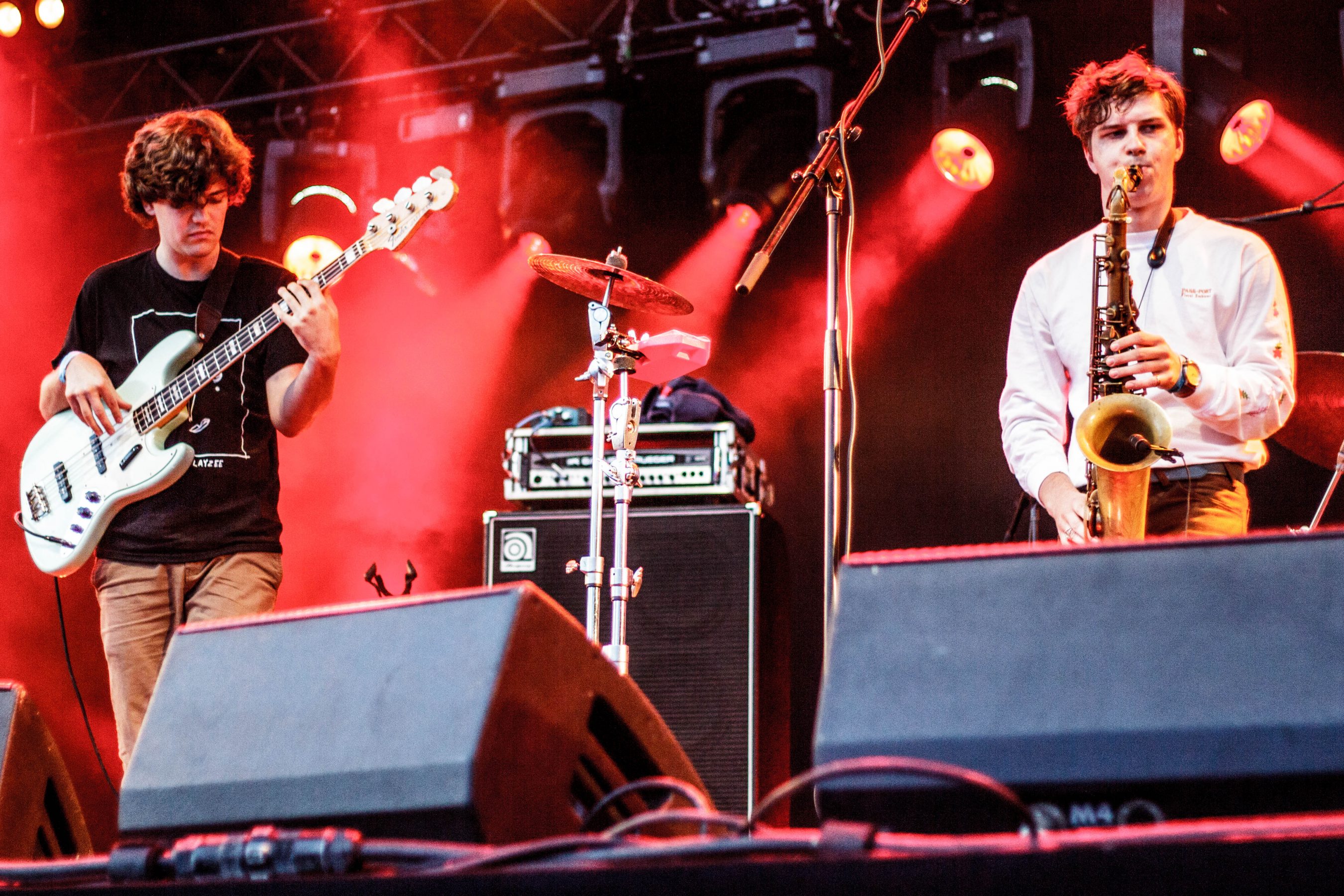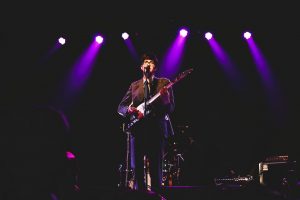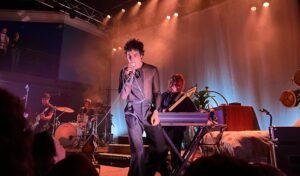On Sunday night, Badbadnotgood solidified their place as one of jazz’s most compelling and entertaining acts. After a dramatic entrance to their rendition of “The Tequila Song” (powered primarily by saxophonist Leland Whitty), the band launched into an hour and a half of solo-packed jams. Though at times meandering and drawn out, Badbadnotgood showed superb collaboration throughout the show, and took the audience through a full range of their material.
After their dramatic “Tequila Song” entrance, the band stuck with a fairly consistent outline for their sets, opening each track with its recognizable hook, sinking deep into experimentation, and then building their way back to an energetic and cathartic finish. Their rendition of “Confessions” closely followed this format, with Whitty delivering an energetic saxophone solo and Chester Hansen following up with a solid bass guitar performance. Throughout many of their sets, James Hill on the keyboard would lead the audience on a long solo, eventually fading into a quieter nebulousness. Alexander Sowinski, who played the drums and fueled most of the band’s interaction with the audience, would then rebuild the band’s energy, lifting them to a triumphant finish capped with a final few measures of the song’s identifiable hook.
Despite the fairly standard format of the band’s sets, they were able to deftly show off their diverse range of skills. Each of the players in the group seem to be preternaturally gifted, comfortable in experimental and more undefined styles, and outright exceptional in high-energy renditions of their songs. Whitty came across especially well, demonstrating his skill with the tenor saxophone on “Confessions” and both the flute and alto saxophone on “Speaking Gently.”
Sowinski, who talked the audience through most of the show, did a good job with encouraging audience engagement, bringing an initially reticent crowd to clap along and become more energized. His somewhat improvisational lead into “Chompy’s Paradise,” which touched on community, self-love, and love for one another, received some criticism from the crowd, but was quickly followed by the show’s climactic final act, “CS60.”
Originally recorded before Whitty joined the band, the song placed great emphasis on solos from Hansen and Hill. As Hansen sweat over his bass, sparring with and complementing Sowinski on the drums, Whitty and Hill moved aside, putting full emphasis on the interplay developing between Hansen and Sowinski. The band’s four albums and almost six years of working together has built a unique rapport between the players, put in full view in the playful and surprising solos such as these. As Hansen wrapped up, Sowinski again engaged the crowd, encouraging the audience to slowly crouch in preparation for a final release. The crowd warmed to the idea, until everyone on the dancefloor was caught in a low squat, cameras ready, eager to spring back up at Sowinski’s countdown. Hill rejoined his bandmates, and the three slowly built the song’s identifiable melody; as it swelled, Sowinski begin counting down, whipping the audience into frenzied excitement, ready to jump back into full intensity. The music built, and when the band finally began to boil over, Whitty leapt back onto stage, Sowinski finished the countdown, and the crowd erupted into outright elation. Hill’s well-practiced recital of the song’s hook soared over the crowd; Hansen’s rumbling bass shook the dancefloor; Sowinski’s unrelenting drumming moved the crowd, and Whitty’s precise cowbell punctuated the song’s compelling beat. Altogether, it was an extremely energetic and masterful display of a band at the cutting edge of their genre, bringing an old form of music to an audience with a need to be moved by their music.





